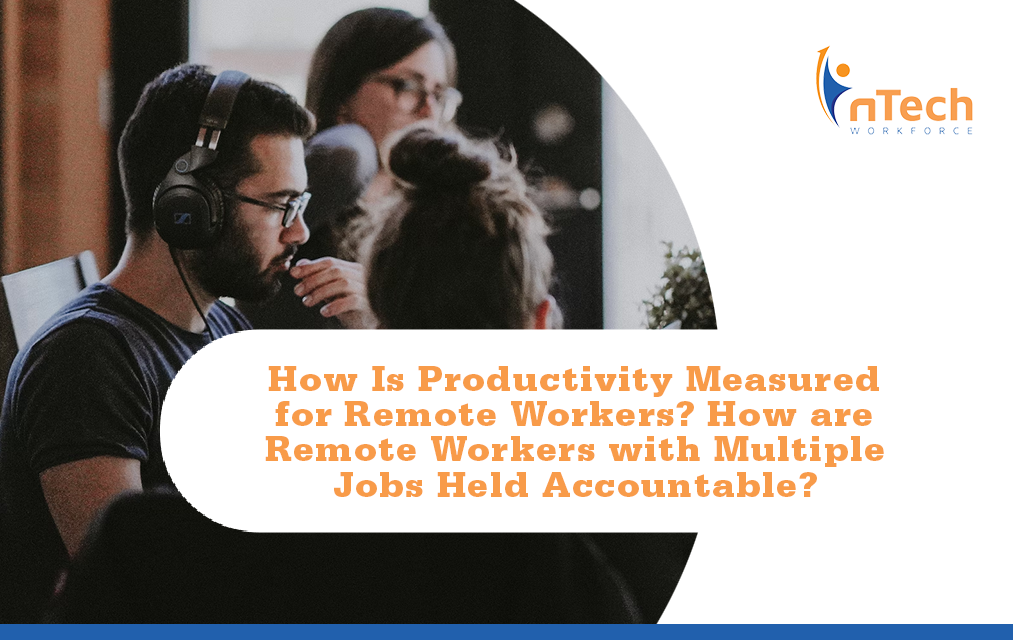Stay Connected by Mastering Communication With Your Remote Team
Remote work opportunities have completely changed the professional landscape, especially in industries like IT where top talent has decided to step...
3 min read
![]() nTech Workforce
:
Feb 21, 2023 8:00:00 AM
nTech Workforce
:
Feb 21, 2023 8:00:00 AM

The debate about worker productivity and remote work is not a new one, but it has gained more attention due to the pandemic when remote and hybrid working have become permanent realities for many companies.
In September 2021, Microsoft reported that 90% (the highest recorded number) of employees felt included in the organization when working remotely. It also noted that employee confidence and feeling the support of managers was at an all-time high. This revealed that employees don’t necessarily need to share a physical office space to work and collaborate. Offering flexibility has become the key. 87% of employees want to work most of the time remotely. 81% of employers are changing their working models to adapt to workers’ expectations and offer them greater flexibility to work remotely.
The economy is witnessing a shift of power from the employer to the employee. As such, leaders and organizations are building new business models to meet the changing needs of their employees.
Remote work has many merits for employees and employers, here are a few:
As indicated earlier, employees prefer working from home and expect their employers to offer them flexibility. A study reported that 84% of full-time workers are happier working from home rather than in an office.
The fact that they don’t have to commute saves them time. A WFH survey suggested that the absence of a commute saved employees an average of 70 minutes daily. This time can be used to focus better on their work.
There is a drastic reduction in employee turnover rates if the organization offers remote and hybrid work arrangements. For instance, a study found that employee quit rates were reduced by 35% if the organization offered greater flexibility.
More employees have become health-conscious since working from home. They have a better and healthier lifestyle. Since remote work allows them the flexibility to figure out their schedule, they get the time to do more physical activities like jogging/running, going for walks, etc. Better mental and physical health also means an increase in productivity.
Working from home options has given employees more opportunities to save costs and time of commuting to the office. Jimmy Iannuzzi, VP and General Manager at nTech Workforce, believes that companies should allow more and more people who can work from home to work from home. He emphasizes that a great work environment is built on measuring work-from-home productivity relative to expected outcomes.
Some people argue that the rise of remote and hybrid working has led to employees taking a second job. Iannuzzi highlights that having another job is almost irrelevant as it is hard to tell if someone is working another job. “At the end of the day, you should have faith in your metrics and your expected outcomes, and that should be the standard, not necessarily whether they will be working another job or not.
Unfortunately, in certain economies, people have to work other jobs; that's just the reality, especially frontline workers who have to pull that second half-shift or another part-time job.” Therefore, employers need to assess whether their employees are meeting their productivity standards instead of focusing on whether their employees have other jobs or not.
However, the issue takes a different turn if the employees use the company’s resources for their other jobs. It is important to note that people worked more than one job before the pandemic and remote working. The pandemic has just allowed these people to put in more hours in their jobs.
The question around remote work productivity while working two jobs is built from an employer-centric mindset instead of an employee-centric one. As the workforce has shifted, the economy is witnessing more of an equilibrium where it has become necessary for employers to recognize what matters to their employees. As such, employees working more jobs don’t matter if there are clear expectations from employees in place and a reasonable and consistent way to measure productivity relative to outcomes instead of actions taken or time at their workstation.
At nTech Workforce, we leverage our years of expertise to improve business outcomes for our clients. We focus on solving your hiring, productivity, and diversity challenges through our unique and creative solutions.

Remote work opportunities have completely changed the professional landscape, especially in industries like IT where top talent has decided to step...

In recent years, the landscape of work has undergone a significant transformation, with remote work becoming increasingly prevalent. Whether you're...